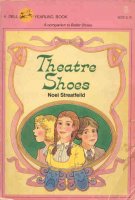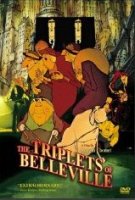Sometimes the difference between a useless tool and a helpful one, or a good tool and a great one, is merely a matter of imagination.
I dislike decorative trinkets, and most especially if they must be dusted. My mother-in-law, however, loved them, and we received many gifts that were more in line with her preferences than mine. Thus I wasn't entirely pleased when she proudly presented me with a Charleston, South Carolina sweetgrass basket, beautiful as it was. But inspiration hit, and instead of hanging it as a wall decoration, I put the basket on a desk in our entranceway. Not only does it look lovely, but in an instant I solved my perennial "where are my keys?" problem! Because the basket gets continual use, it never needs dusting, and its presence must have saved me, over the years, hours of searching time. The right tool in the right place. (More)
Permalink | Read 4978 times | Comments (0)
Category Everyday Life: [first] [previous] [next] [newest] Conservationist Living: [first] [previous] [next] [newest]
Is there a word, in any language, for "my daughter's husband's cousin's husband"? That's what Kevin Michael Johnson is, and I'm proud to claim the family relationship, however distant and awkwardly-phrased. Kevin is an actor, living in New York City with his lovely singer-songwriter wife, Steph Shaw. One of his recent triumphs was in the show Wild Black Yonder, which a number of members of our family (but, alas, not I) were privileged to see at "The Kate" in Old Saybrook, Connecticut.
Kevin's latest venture is The Raid, a documentary about the tremendously popular online game, World of Warcraft. Everything I know about WOW I learned form the Foxtrot comic strip...at least until I watched Kevin's promotional video. The embedded video below is from YouTube, but the link will take you to a video on the official, more informative site, where you can also get involved in the project if it excites you. You can also check them out on Facebook.
Permalink | Read 3255 times | Comments (2)
Category Random Musings: [first] [previous] [next] [newest] Everyday Life: [first] [previous] [next] [newest] Just for Fun: [first] [previous] [next] [newest]
 Mayflower: A Story of Courage, Community, and War, by Nathaniel Philbrick (Penguin, New York, 2006)
Mayflower: A Story of Courage, Community, and War, by Nathaniel Philbrick (Penguin, New York, 2006)
Whatever your preconceptions are of the Mayflower, its passengers, and the Native Americans whose lives were irrevocably altered by its arrival on their shores, Nathaniel Philbrick will change them. From the much-sanitized stories many of us older folks learned in elementary school, to the "politically correct" versions that sneer at the Pilgrims and idealize the Indians—forget them all. They're all partly true, but mostly false, and completely over-simplified. Both the Pilgrims and the Natives were better, and worse; more innocent, and more Machiavellian; wiser, and more foolish; more skillful, and more inept; than our visions of them. In short, they were all thoroughly human, and Mayflower's greatest strength lies in its ability to make these humans, European and Native American, as real to us as our next-door neighbors. (More)
 Theatre Shoes, by Noel Streatfeild (Dell, New York, 1983)
Theatre Shoes, by Noel Streatfeild (Dell, New York, 1983)
This wasn't on my reading list at this time, but the combination of (1) hearing a Teaching Company lecture about The Tempest and remembering the part it plays in this book, and (2) a dreary, chilly, rainy day in which the computer, the dryer, and the telephone all suddenly stopped working, led me to feel that what I needed was a bit of curling up by the heater with a blanket, a cup of tea, and an easy-to-read, uplifting book. (More)
Ah, a glass of red wine, bruschetta (made with homemade bread), and a Porter-made salad with spring greens, scallions, artichoke hearts, kalamata olives, and rosemary and sea salt focaccia sticks with sun-dried tomato spread, dressed with a dressing concocted from balsamic vinegar and a marvellous lemon-olive oil from Italy that was a gift from Stephan's parents.
A perfect accompaniment to Shakespeare.
Shakespeare: The Word and the Action, by Peter Saccio; a Teaching Company lecture
For accessible, serious, high-quality, adult-level educational materials (DVD, tape, mp3 downloads) it's hard to beat The Teaching Company. Tonight we finished the last lecture of Shakespeare: The Word and the Action, a course which easily ranks as one of my favorites.
Here are the titles of the 16 lectures:
- Shakespeare's Wavelengths
- The Multiple Actions of A Midsummer Night's Dream
- The Form of Shakespeare's Sonnets
- Love in Shakespeare's Sonnets
- Love and Artifice in Love's Labor's Lost and Much Ado About Nothing
- As You Like It
- The Battles of Henry VI
- Richard III and the Renaissance
- History and Family in Henry IV
- Action in Hamlet
- Coriolanus—The Hero Alone
- Change in Antony and Cleopatra
- The Plot of Cymbeline
- Nature and Art in The Winter's Tale
- Three Kinds of Tempest
- History and Henry VIII
I find it easy to be intimidated by Shakespeare; despite the efforts of my high school teachers, the glories of the Bard didn't begin to open to me until a few months after my 50th birthday, when I saw Kenneth Branagh's version of Henry V.
Saccio's lectures aren't this inspiring, I will admit. But most of the plays he teaches I have never seen nor read, and every single lecture left both of us eager to experience the play, which is no small accomplishment. I highly recommend this course.
Check out this TED lecture: Pranav Mistry: The thrilling potential of SixthSense technology, not only for what might be ahead in the world of computing (hint: the line between computing and interacting with the real world is about to get quite blurry) but also for what a brilliant mind can think of when pondering the workings of an ordinary computer mouse. You are in a taxi on your way to the airport and want to check the status of your flight. Who needs an iPhone? Simply look at your boarding pass, and a tiny device attached to your body reads the information and projects back onto the card that your flight is 20 minutes delayed. Thanks, Janet, for sharing this.
Forget whatever witty and informative post I was going to provide tonight. Go over to The Occasional CEO and read about the latest and greatest economic forecasting tool: Just Follow the Bones.
Permalink | Read 2453 times | Comments (1)
Category Just for Fun: [first] [previous] [next] [newest]

Eugenics and Other Evils: An Argument Against the Scientifically Organized State, by G. K. Chesterton. With Additional Articles by His Eugenic and Birth Control Opponents, including Francis Galton, C. W. Saleeby and Marie Stopes, as Well as Articles from Eugenics Review and Birth Control News. Edited by Michael W. Perry. (Inkling Books, Seattle, 2000)
In a day when our political views are more polarized than ever, and we tend to choose and judge what we read or watch by its political and social slant, there's a delightful keenness about a book that cannot be so classified. It is simultaneously far right and far left, which means nothing more than it is something else altogether. (More)
Having waited at home for an expected delivery, it was late when I was finally free to take my accustomed walk. By the time I was on the homeward stretch, but little of the lingering twilight illumined the trail. What's more, I usually walk with my glasses off to rest my eyes, so when a small animal scooted across the trail in front of me I was not immediately certain of its identity. I thought "cat," but when it turned around and came back, it moved more like a rabbit. Except that rabbits don't move toward people; they scurry away. I was sure it would be gone by the time I fumbled my glasses out of my belt pack, but it was still hopping around; definitely a rabbit: small, and as cute as a rabbit can get—and in my mind, rabbits go rather far in that direction.
Then the game began. (More)
Permalink | Read 2538 times | Comments (1)
Category Everyday Life: [first] [previous] [next] [newest]
The latest version of Thunderbird, 3.01, includes a number of significant changes from Version 2. I think I'm going to like it, at least once the fix a major bug, which I understand they are working on. The old Thunderbird allowed the assignment of nicknames to e-mail addresses, so, for example, I could set up simple two-letter codes for people I write frequently, and typing those codes into the "To" field auto-completed the correct address. The new Thunderbird still allows nicknames, but they work differently: the named address becomes merely one of many suggestions made by the auto-complete engine, and it's rarely the first. Hence I, and from the word on the Internet, many others, have been embarrassed by sending e-mails to the wrong people. What's more, the auto-complete engine insists on searching all addresses for possible matches. I have three address books in Thunderbird: my Personal Address Book, one I call Archives, into which I put addresses I might want once in a blue moon, and one Thunderbird adds, called "Collected Addresses," which it populates from e-mails sent and received. All of these are useful, but I'd like to be able to tell Thunderbird to ignore all but the Personal Address Book.
Like Firefox, Thunderbird now uses tabs. In Firefox (and Internet Explorer) it's annoying, because the button to open a new tab is right next to the button to close the tab, and I'm forever closing tabs by accident and often losing work in the process. But Thunderbird doesn't have the "add tab" button to foul me up, and it's handy to be able to have several search results and a few e-mails all open in tabs. Thunderbird remembers what tabs you had open when you exited the program, and restore them when you open it again. (More)

Les Triplettes de Belleville (2003, Sony Pictures, directed by Sylvain Chomet, PG-13)
Also known as The Triplets of Belleville, this is the quirky, sometimes funny, animated story of a bicycle racer, his grandmother, his dog, the French Mafia, and has-been singing trio. The award-winning film is meant for adults, but were it not for a couple of brief scenes (a music hall show, and some in-passing shots of prostitutes in the hallway), I think our six-year-old grandson would love it. (Hmmm, there is a funny part that might be tough for his frog-loving mother, however.)
We enjoyed it, too, though we found it a bit like a Presbyterian sermon: they could have said the same thing better in a third the time. Maybe that is just my American impatience.
I found it quite amusing that for such a very French film, the only language options available on the DVD Netflix sent were English and Spanish. Not that it matters: there's almost no dialog, and what there is, is inconsequential.
For some reason I haven't pinned down, the movie brought to mind the Asterix comics. Perhaps it was the French setting, perhaps something about the drawings, maybe something in the humor.
You can get a taste from the trailer: Les Triplettes de Belleville. (Link provided because some feedreaders don't pick up the embedded video.) The trailer is safe for granchild eyes, at least as far as Grandma can tell.
The good news is, there's a new orchestra in town: The Orlando Baroque Orchestra. Some area musicians observed Central Florida's lack of concerts featuring baroque music and stepped up to remedy the situation. We attended the third area performance of their first concert.
The venue was a small church, and we sat in the third pew. The experience of music in such an inimate setting is worlds different from that in a large concert hall, and to my mind significantly more enjoyable. It is not as much fun as making music yourself in a group, but comes closer. For this reason, I thoroughly enjoyed the concert, despite having numerous complaints, most of which had to do with disappointed expectations. But when your experience of baroque orchestras is Boston's Handel and Haydn Society; of lutists is Paul O'Dette; of harpsichordists is Kristian Bezuidenhout; and of oboists is, well, a whole host of marvellous performers; it's difficult not to set yourself up for a fall. (More)
Nanosurf—the company that put an atomic force microscope on Mars and good Swiss bread on Janet's table—has a cool promotional video.
Permalink | Read 2536 times | Comments (1)
Category Just for Fun: [first] [previous] [next] [newest]
Most of you can stop reading right now. The Pap smear is not a subject of general interest, but I spent five years working in a cytopathology automation research laboratory, part of an attempt to make the reading of Pap smears easier and more accurate. Thus the following headline was sure to catch my eye: Should HPV Test Replace the Pap Smear?
The primary purpose of the Pap smear is the early detection of cervical cancer, it is argued, but testing for human papillomavirus is easier and actually does a better job, although it generates more false positives, especially in younger women.
What I find most interesting is the unmentioned, but logical implication that those who are at no risk of contracting HPV, due to the simple expediencies of virginity or faithful monogamy, can dispense with both tests—surely a course of action the medical industry would not wish to endorse! Gastroenterologists have adopted a once-every-ten-year colonoscopy recommendation for low-risk patients, perhaps gynecologists should follow their example.[This] recommendation is based on a study that found that the human papillomavirus (HPV) test prevented more cases of cervical cancer than the conventional Pap smear. Results of the study were published online Jan. 19 in The Lancet Oncology.
The HPV test should become the screening tool of choice for women 35 and older, the researchers said. It could be done less frequently than the Pap test, which could be used only in women who have tested positive for HPV, they said.



